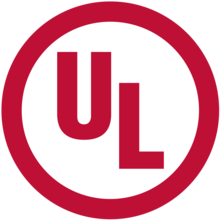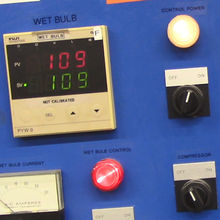This article was originally published by Inside UL.
Where Performance and Reliability Meet Design and Innovation.
Did you ever wonder why some of your appliances last longer than others? Or, why one product performs better than its competitor? If yes, then you are in the right place as the staff at UL’s Product Engineering Services team in Newton, Iowa have been answering those questions and more since 2008.

Originally known as Springboard Engineering, the Product Engineering Services team was founded in the heart of America’s Midwest by a group of engineers from Maytag. These entrepreneurs decided to pool their talent and expertise to offer testing services to manufacturers that were interested in learning how their products performed over their expected life cycle.
In 2011, UL recognized the value that a company like Springboard Engineering could bring to UL’s customers and acquired them. Comprised of consumer scientists, engineers of various disciplines (electrical, mechanical, reliability and software) and technicians, UL’s Product Engineering Services team offers a unique round of services to complement UL’s traditional core business, such as Engineering Advisory, Performance and Reliability Engineering, Energy Efficiency, Prototyping and Custom Test Equipment.
Almost every project is based on the customer’s needs. “We understand what their goals are and what it’s like to be in their shoes,” says Brian Clark, Engineering Leader, Product Engineering Services.
Click here to go behind the scenes of Product Engineering Services.
Once a one site operation, the UL campus in Iowa now consists of three locations, including a laboratory where major appliances, such as clothes washers and dryers, dishwashers and cooking and refrigeration equipment are evaluated for performance, efficiency and reliability; a fire containment lab for the evaluation of appliances; and a production facility for the manufacture of testing equipment.

The production facility is uniquely known for its moving mirror goniophotometer, which is designed to evaluate the luminance of lighting products. Offered in three different size configurations, the moving mirror goniophotometer benefits manufacturers of lighting products that want to be able to determine their photometric performance.
“The Product Engineering Services team takes great pride in helping our customers find solutions to their most challenging engineering and testing needs,” says Steve Joerger, General Manager, Product Engineering Services.
Offering such a wide range of capability requires testing equipment and a lot of it. Here is a snapshot of what UL Product Engineering has at its disposal:
- Environmental chambers that create various conditions of heat, cold, and humidity for evaluating the reliability of appliances;
- Power measurement devices that record the electricity usage of electric heating appliances to determine energy efficiency;
- Flow metering equipment that measures the water consumption of dishwashing and laundry equipment for efficiency and performance;
- Gas flow and temperature measurement equipment for evaluating the combustion efficiency of furnaces, boilers, water heaters, etc;
- Test rooms that mimic full-service kitchens for performance and efficiency evaluations of major cooking appliances;
- Heat and smoke detection equipment for conducting fire containment tests on appliances such as ovens and clothes dryers; and,
- A design and development center with various injection molding and machining equipment for the manufacture of small parts.
Ever-changing market conditions place pressure on manufacturers to design products that continue to meet consumer expectations of quality, performance and efficiency. UL’s Newton team is uniquely positioned to satisfy customer needs for independent advisory and engineering services that can help them succeed in the marketplace.
For more information, please visit: Appliances and HVAC | Product Engineering Services
